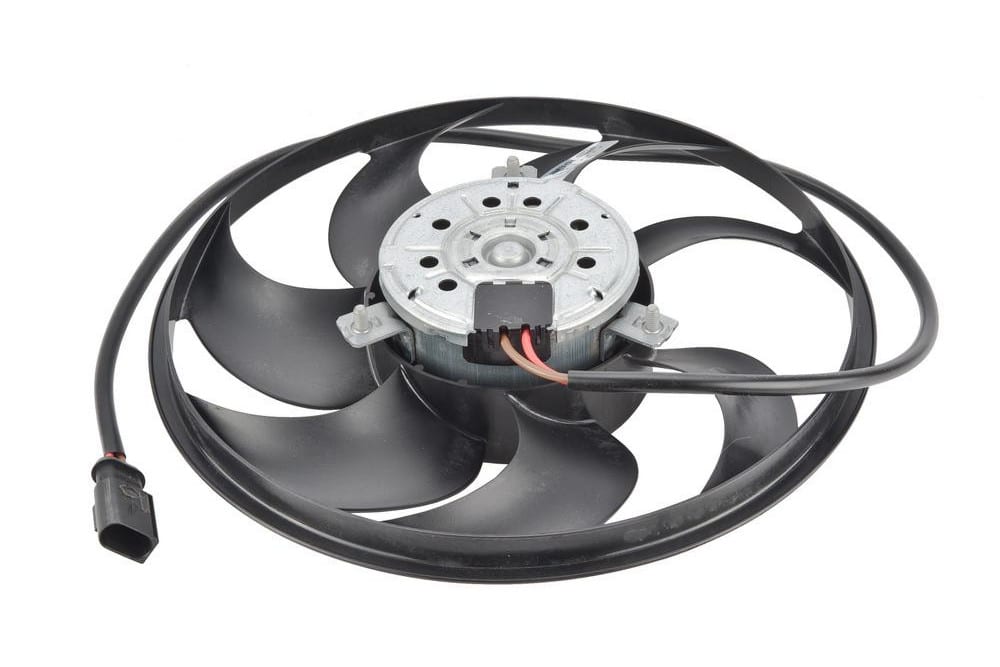

Virtually all modern vehicles built today use electric cooling fans to help pull air through the radiator to keep the engine cool. Once the coolant temperature sensor detects that the engine temperature has exceeded acceptable levels, the cooling fans will be activated to keep the engine cool. Many vehicles come equipped with cooling fans that operate on more than one speed setting. This is made possible by routing their power through the cooling fan resistor. The cooling fan resistor is an electrical resistor that limits power to the fan in steps, so that the fan can operate at different speeds according to the cooling system’s demands. Since power to the cooling fan is sometimes routed through the cooling fan resistor, when it fails or has any problems, it can cause issues with the regular operation of the fans, which can lead to overheating. Usually a bad cooling fan resistor will produce a few symptoms that can alert the driver of a potential problem that should be serviced.
1. Engine overheats
One of the first symptoms of a potential problem with the cooling fan resistor is engine overheating. If the cooling fan resistor fails or has any issues, it can cause power to be cut off from the cooling fans, which can lead to overheating. Any sort of overheating issue should be tended to as soon as possible to avoid the possible engine damage.
2. Cooling fan speed issues
Another symptom of a possible problem with the cooling fan resistor is issues with the cooling fan speed. If the resistor breaks or has any issues it may cause the fans to only function on certain settings. The cooling fan resistor is meant to send power to the fans in steps, so that the fans may operate at different speeds. If any of the individual steps or switches fail, it will disable the cooling fans from operating on that speed setting. You may notice that the cooling fans only operate at one speed, when they used to operate on two or more.
3. Cooling fans never turn off
Another symptom of a potential problem with the cooling fan resistor is cooling fans that stay on at all times. If the resistor shorts or fails, it can cause the cooling fans to stay on even when they are not supposed to. In certain cases, the cooling fans may even stay on when the vehicle is turned off, and will create a large parasitic drain that will eventually kill the battery.
The cooling fan resistor is an important component, as it is one of the components that routes power for the cooling fans. For this reason, if you suspect that your cooling fan resistor may be having an issue, have the vehicle inspected by a professional technician, such as one from YourMechanic, to determine if your car needs a cooling fan resistor replacement.



